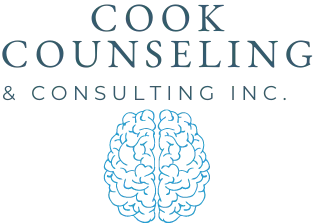It’s no secret that stress can take a toll on our mental and physical health. In recent years, there has been an increase in the number of people who suffer from burnout – a condition characterized by long-term stress and exhaustion. Burnout can lead to anxiety and other mental health issues. But are burnout and depression related? And if so, how?
Burnout and Its Symptoms
Burnout is a condition that is characterized by long-term stress and exhaustion. It can lead to anxiety, irritability, and depression. Symptoms of burnout include:
· Feeling overwhelmed or hopeless
· Loss of interest in work or hobbies
· Insomnia
· Changes in appetite
· Muscle pain
· Headaches
Burnout is often caused by work-related stress. But it can also be caused by other stressors, such as caring for a sick family member or dealing with personal problems. People at risk for burnout often have unrealistic expectations, perfectionist tendencies, and a strong need for approval.
Depression and Its Symptoms
Depression is a mental health disorder characterized by persistent sadness, loss of interest in activities, and difficulty functioning. Depression can also cause physical symptoms, such as fatigue and headaches. Other symptoms of depression include:
· Feeling hopeless or helpless
· Sleeping too much or too little
· Changes in appetite
· Loss of interest in hobbies or activities
· Difficulty concentrating
· Thoughts of death or suicide
According to Harvard Medical School, depression can be caused by genetic vulnerability, flawed mood interpretation, and stressful events (Harvard Health Publishing, 2022). People with a family history of depression are more likely to experience it themselves. Similarly, people dealing with stressors, such as job loss or the death of a loved one, are also at risk for depression. Treatment for depression often includes medication and therapy.
Are Burnout and Depression Related?
While burnout and depression share common symptoms, they are two different conditions. However, burnout can lead to depression. And people who are depressed are more likely to experience burnout.
The two conditions share some symptoms, but there are important differences.
Burnout is a state of physical, emotional, and mental exhaustion caused by long-term or chronic stress. It can lead to feeling overwhelmed, hopeless, and disconnected. Depression is a serious medical condition that causes a persistent low mood and loss of interest in activities. It can also cause physical symptoms like fatigue and sleep problems.
Burnout typically comes on gradually, while depression may come on suddenly. And while burnout is often linked to work or other external factors, depression can be caused by internal factors like chemical imbalances in the brain.
Burnout and depression can cause similar symptoms, such as fatigue, irritability, and difficulty concentrating. But there are some key differences. For example, people with burnout may still be able to find enjoyment in activities they once enjoyed, whereas people with depression may not. And while people with burnout may feel like they’re just not cut out for their job, people with depression may feel like life is pointless altogether.
Final Thoughts
People who are experiencing burnout may be at risk of developing depression. And people who are depressed may be more likely to experience burnout. If you’re struggling with symptoms of either condition, it’s important to seek professional help. Treatment for burnout or depression often includes medication and therapy.
References
Harvard Health Publishing. (2022). What causes depression? Retrieved from Harvard Medical School: https://www.health.harvard.edu/mind-and-mood/what-causes-depression
